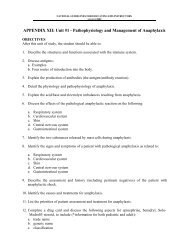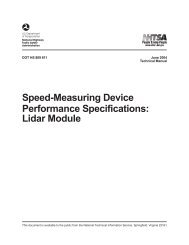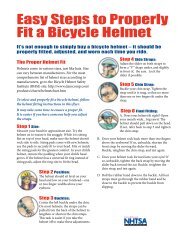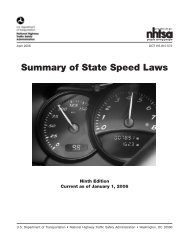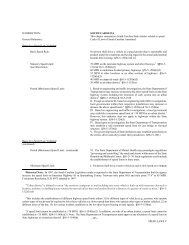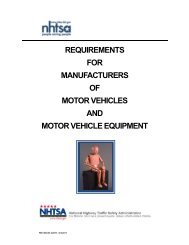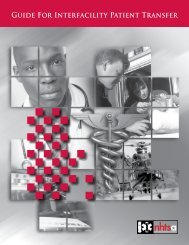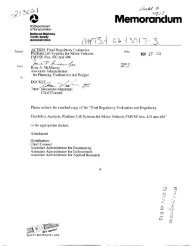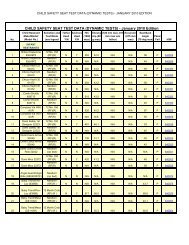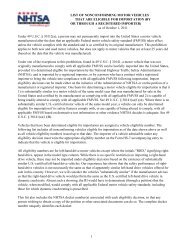Standard Practice for Emergency Medical Dispatch ... - NHTSA
Standard Practice for Emergency Medical Dispatch ... - NHTSA
Standard Practice for Emergency Medical Dispatch ... - NHTSA
Create successful ePaper yourself
Turn your PDF publications into a flip-book with our unique Google optimized e-Paper software.
5. Significance and Use<br />
1. The emergency medical dispatcher should be a specially trained<br />
telecommunicator with specific emergency medical knowledge. Many<br />
of these personnel still per<strong>for</strong>m in this role without the benefits of<br />
dispatch specific medical training and medically sound protocols. The<br />
majority per<strong>for</strong>m their duties without appropriate medical<br />
management provided through a structured quality<br />
assurance/improvement environment. Training only prepares a new<br />
EMD <strong>for</strong> correct use of the EMDPRS. It cannot ensure that it is<br />
accessed and complied with as intended. Since the EMD is now clearly<br />
defined as a pre-hospital medical professional, it is necessary to<br />
establish sound medical management processes through a multicomponent<br />
QA/QI program administered by the EMD’s agency in<br />
conjunction with the physician medical director. Prompt, correct, and<br />
appropriate patient care can be enhanced through the use of a<br />
standardized approach to quality assurance, especially the component<br />
of EMD per<strong>for</strong>mance assessment. This practice is intended <strong>for</strong> use by<br />
agencies, organizations, and jurisdictions having the responsibility <strong>for</strong><br />
providing such services and assurances to the public through the<br />
correct management of the nation’s emergency medical dispatchers.<br />
6. EMD Entry Level Selection Criteria<br />
1. Each emergency medical dispatch agency shall adopt a <strong>for</strong>mal written<br />
policy delineating the selection procedures <strong>for</strong> individuals to be<br />
employed as emergency medical dispatchers. It must address the<br />
ability to:<br />
1. Read and write at a high school graduate or GED level;<br />
2. Per<strong>for</strong>m those clerical skills as delineated by the employing agency;<br />
3. Per<strong>for</strong>m verbal skills in a clear and understandable manner, in the<br />
required language or languages established as necessary to that<br />
emergency medical dispatch agency;<br />
4. Per<strong>for</strong>m alphanumeric transcription skills necessary to correctly record<br />
addresses, locations, and telephone numbers; and<br />
5. Demonstrate competency in basic telecommuncations skills as required<br />
by the employing or training agency.<br />
1. Selection criteria should also include the following:<br />
1. A clear attribute of helpfulness and compassion toward the sick or<br />
injured patient and caller advocate;<br />
2. The ability to clearly guide callers in crisis through application of<br />
necessary interrogation procedures and the provision of telephone prearrival<br />
instructions;<br />
3. The ability to learn and master the skills, philosophy and knowledge<br />
required to successfully complete the training process;<br />
4. The ability to efficiently and effectively organize multiple tasks and<br />
complicated situations and activities;<br />
5. The ability to handle the levels of emotional stress present in<br />
caller/patient crisis intervention, death and dying situations, call<br />
prioritization and triage, and multiple tasking;<br />
6. The ability to function within the team framework of public safety and<br />
EMS systems; and<br />
65



